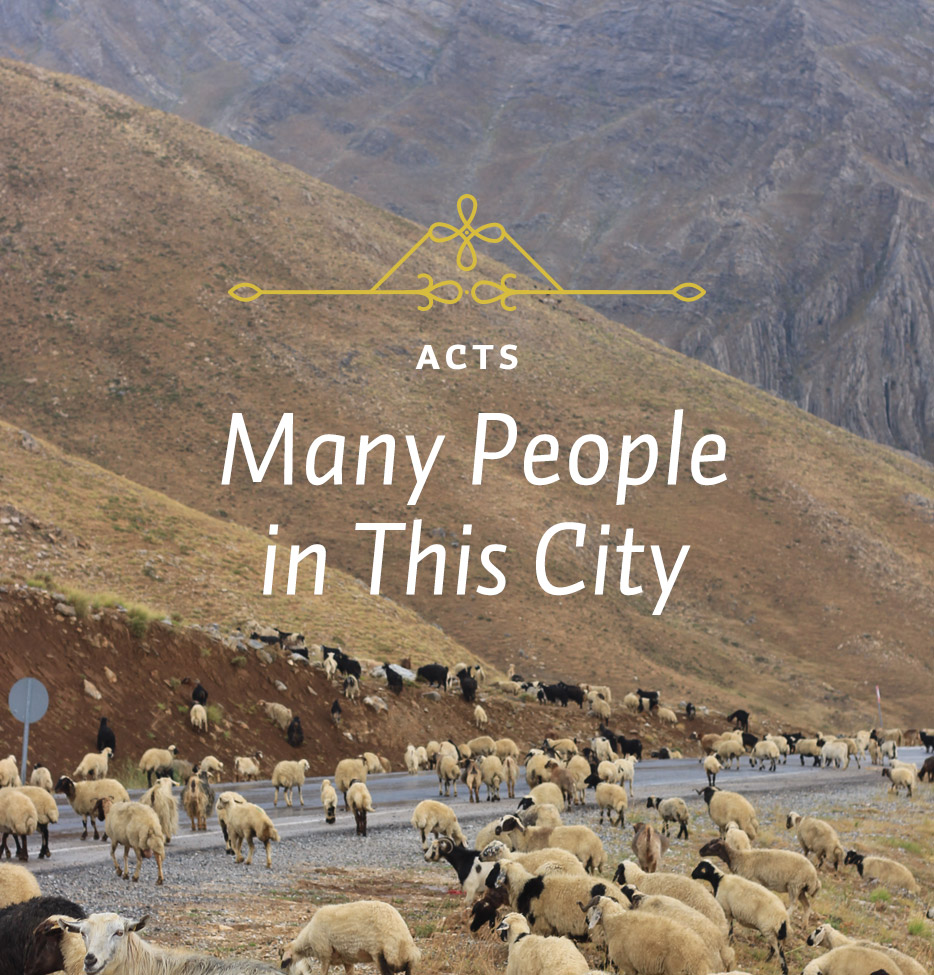In the eighteenth chapter of Acts, we find Paul working for a year and a half in Corinth. Corinth was not like Athens. In fact, it was different from most other cities Paul had visited. Yet it was receptive to the Gospel, and Paul spent the first long period of his missionary career in this city. Later he would spend a similarly long time in Ephesus.
Here are three words to help remember what Corinth was like. They are easy to remember, because Corinth begins with the letter C and each of these words also begins with the letter C.
1. Corinth was cosmopolitan. It contained a mixture of people and races. This was not strikingly true of all the cities Paul had visited, though, of course, in the Roman world of that day all cities had some mixture. Antioch in Syria, from which Paul started out, was an amazingly cosmopolitan city. But Philippi was a Roman colony; it had been settled by retired Roman soldiers and was almost entirely Roman. Athens was a center for intellectuals. Other cities also tended to be more or less homogenous. Not so Corinth. Corinth had a tremendous mixture of people because it was a seaport and its work was commerce. As a result, people came to Corinth from all over the Roman world.
2. Corinth was commercial. Every city has its commercial aspects, of course. Generally, cities are where they are because their location is convenient for the exchange of goods. Corinth was uniquely such a place.
It was situated on the narrow isthmus between the upper and main part of Greece and the area of the Peloponnese to the south. Because the isthmus was narrow, traffic crossed Corinth in two directions. It crossed from north to south and south to north along the land—that is, from the Peloponnese up into the mainland and the reverse. But it also crossed Corinth east to west and west to east across the isthmus. It was common for ships to dock at Corinth on the Adriatic side, have their cargo unloaded and then carried by slaves up over the isthmus to the other side, where it would then be reloaded onto other ships which would sail on into the Aegean Sea and points east.
3. Corinth was corrupt. Everybody knew it. In the ancient world, the name “Corinthian” was synonymous for the most perverted behavior. Corinth was a center of the cult of the love goddess Aphrodite. Aphrodite was the same as Venus; Venus was the Roman name, and Aphrodite was the Greek name. The temple of Aphrodite in Corinth was one of the architectural wonders of the ancient world, and at one time there were 10,000 temple prostitutes. They did business with the sailors and other commercial people who passed through the town. If you were called a “Corinthian” in the ancient world (and were not actually from Corinth), you would regard that name as an insult.
As I read this chapter, I find myself wondering about Paul’s frame of mind as he arrived in this very contemporary city. I ask whether Paul, great man of God that he was—a tower of strength and faith—was discouraged. I tend to think he was. Not a great deal is said about it. But I think, as I look at what had happened in the days leading up to this and also at the way he conducted himself when he got to Corinth, that he was probably very discouraged.






